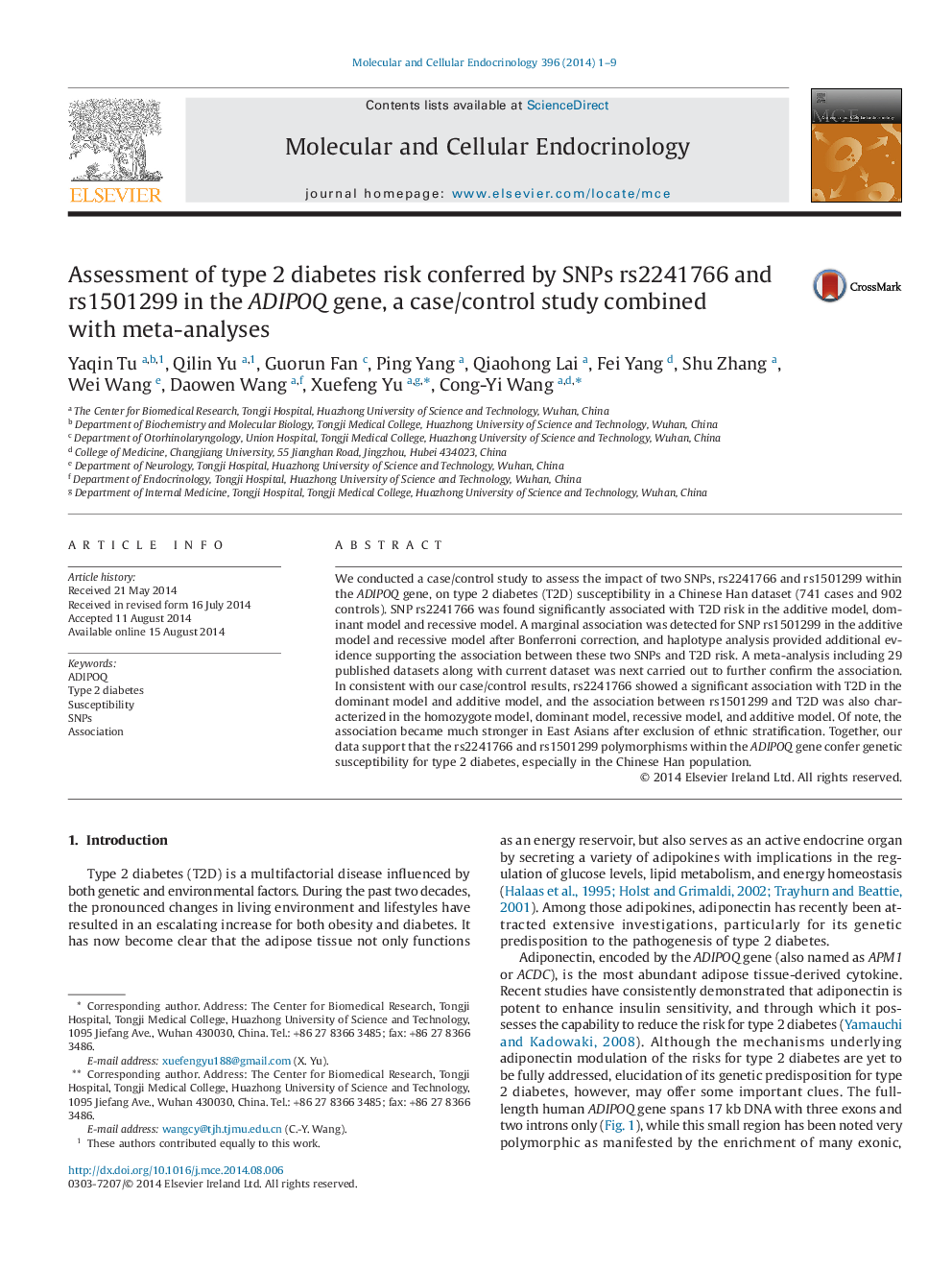| Article ID | Journal | Published Year | Pages | File Type |
|---|---|---|---|---|
| 2195904 | Molecular and Cellular Endocrinology | 2014 | 9 Pages |
•We conducted a case/control study to assess the impact of two SNPs, rs2241766 and rs1501299 within the ADIPOQ gene, on type 2 diabetes (T2D) susceptibility in a Chinese Han dataset.•A meta-analysis including 29 published datasets along with current dataset was next carried out to further confirm the association.•Our data support that the rs2241766 and rs1501299 polymorphisms within the ADIPOQ gene confer genetic susceptibility for type 2 diabetes, especially in the Chinese Han population.
We conducted a case/control study to assess the impact of two SNPs, rs2241766 and rs1501299 within the ADIPOQ gene, on type 2 diabetes (T2D) susceptibility in a Chinese Han dataset (741 cases and 902 controls). SNP rs2241766 was found significantly associated with T2D risk in the additive model, dominant model and recessive model. A marginal association was detected for SNP rs1501299 in the additive model and recessive model after Bonferroni correction, and haplotype analysis provided additional evidence supporting the association between these two SNPs and T2D risk. A meta-analysis including 29 published datasets along with current dataset was next carried out to further confirm the association. In consistent with our case/control results, rs2241766 showed a significant association with T2D in the dominant model and additive model, and the association between rs1501299 and T2D was also characterized in the homozygote model, dominant model, recessive model, and additive model. Of note, the association became much stronger in East Asians after exclusion of ethnic stratification. Together, our data support that the rs2241766 and rs1501299 polymorphisms within the ADIPOQ gene confer genetic susceptibility for type 2 diabetes, especially in the Chinese Han population.
